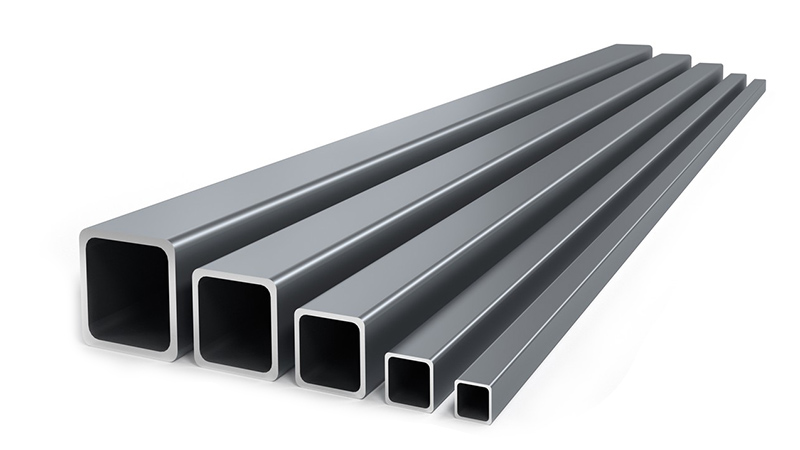


Steel pipe is a tubular material made by rolling or welding steel billets or strips, and its hollow section design provides excellent bending and torsional resistance while reducing its own weight. As an important branch of steel pipes, square pipes specifically refer to steel pipes with square or rectangular cross-sections, which have the advantages of both structural strength and spatial efficiency.
Mechanical properties: high yield strength and tensile strength (such as Q355ND material yield strength ≥ 355MPa, tensile strength 470-630MPa), excellent low-temperature toughness (-20 ℃ impact energy ≥ 34J).
Processing adaptability: It can be welded, cut, and bent into shape, with a smooth surface and high precision.
Durability: Corrosion resistance (especially galvanized and stainless steel types), good stability in humid environments.
Welded square tube (GB/T 6728-2017): Common side length: 20×20mm~500×500mm.
Wall thickness range: 1.0mm~30mm (such as 20×20×1.5mm, 50×50×3mm, 100×100×5mm).
Seamless square tube (GB/T 3094-2012):
Side length: 10×10mm~300×300mm.
Wall thickness: 1.0mm~12mm (higher accuracy)
Carbon steel: Q195/Q215/Q235, suitable for building frames and fences.
Low alloy steel: Q345/Q390, high-strength and low temperature resistant, used for bridges and mechanical load-bearing components.
Stainless steel: 304/316, corrosion-resistant, suitable for decoration and special environments.
Special treatment:
Galvanized square tube (rust proof, outdoor structure)
Seamless square tube (high-pressure fluid transportation)
Welded square tube: Strip steel coil welding, low cost, commonly used in construction.
Seamless square tube: Cold rolled round tube, no welds, suitable for high-pressure scenarios.
Building structure: Q235/Q345 material supports high-rise buildings and large-span bridges.
Mechanical manufacturing: Thick walled square tubes are used for equipment supports and conveyor tracks.
Special scenario: Ship manufacturing (Q355ND resistant to marine corrosion); High pressure pipeline (seamless square tube, in accordance with GB/T 8163 standard)
The standard length is usually 6 meters (customizable to 12 meters), and international standards cover systems such as GB/T (China), ASTM (USA), EN (Europe), etc.
 English
English